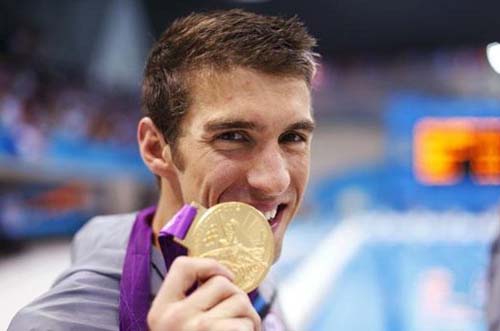Strive to Achieve Success – Eight Olympian Life-Changing Secrets


As the 2012 Summer Olympic Games in London have ended, there were so many incredible stories of success and overcoming adversity to become the best athlete in the world.
Much like the long hours of training and drive to be number one, there is much overlap between what drives an Olympic athlete to success and what we face every day in our lives at work or home.
Shawn Anderson is a best-selling author, national speaker and motivational corporate trainer. He has a philosophy to “go the extra mile” to produce winning results at whatever he does. His goal is help motivate people to be success-driven.
So it doesn’t matter if you’re an underdog or leading contender in life, strive for what you want and keep you rend goal in sight. The key to success is within you, you just have to dig deep and make it happen!
Anderson says “Watching others succeed in the Olympics is fun…no doubt. But when we get only one life, why not try achieving our own Olympic-like success?”
But according to Shawn Anderson, there is so much more to be garnered and applied to our own lives from watching these success-driven athletes.
“An Olympic performance is an amazing example of what can happen when one stays dedicated to a mission,” Anderson says. “In fact, the Games are a perfect time to learn a few life-changing lessons that can catapult us to more success in our own lives.”

Michael Phelps
Below are eight secrets to success that Olympians such as Olympic swimmer Michael Phelps possess that you can embrace in order to achieve your own personal goals:
1. Olympians have an unstoppable purpose. They know what they want, and they are passionate in their pursuit of going after it. Injury might sideline them occasionally, but they have a fire within them that pushes them forward. Nothing hijacks the mission. Three-time Gold medal winner Florence Griffith Joyner: “When anyone tells me I can’t do anything, I’m just not listening any more.”
2. Olympians make every day count. They recognize that time is limited, and they are disciplined in working as hard as they can each day. Olympians understand that today’s preparation and effort determines the level of tomorrow’s success. Many athletes plan out their training schedule up to four years in advance to make sure they reach specific performance goals.
3. Olympians don’t make excuses. They focus on reasons why they can do something, not why they can’t. Swedish shooter Oscar Swahn didn’t let the excuse of age stop him from winning Olympic gold at the age of 60. Even at 72, Oscar competed in the 1920 Olympics.
4. Olympians link up with others. They connect with the best coaches so that they can learn and fully develop their talents. At age 14, 2012 gold medal winner Gabby Douglas left the security of home for two years to train with one of the best gymnastic coaches in the world. If you want to be the best, hang with the best.
5. Olympians grow “good” from “bad.” They know that they have a choice in how to respond to every event or occurrence. They do not surrender to negative emotions for long. South Africa’s Oscar Pistorius didn’t let being a double amputee stop him from running the 400 meters in the 2012 Games.
6. Olympians try harder. Directing all their efforts toward success, Olympians give their goal everything they have. Swimming world record holder Janet Evans swam 10 miles per day, six days a week, in order to return to the Olympics. That’s 330 lengths of an Olympic size-pool.
7. Olympians believe “better” always exists. They believe they can jump higher, run faster and get stronger. Olympians always push for the “more” that is inside of them. American Skeet shooter Kimberly Rhode had medaled in four previous Olympics. In 2012, she won again … this time setting an Olympic record by hitting 99 out of 100 targets.
8. Olympians don’t quit on themselves. They recognize defeat as a necessary obstacle to overcome in order to find eventual victory. Failure is short term and Olympians never let a defeat define them. Dan Jansen was favored to win skating Gold in 1988, but on race day, Dan’s sister died. He later fell on the ice missing out on a medal. Never quitting, Jansen came back two Olympics later and won his Gold.





Encouraging piece.